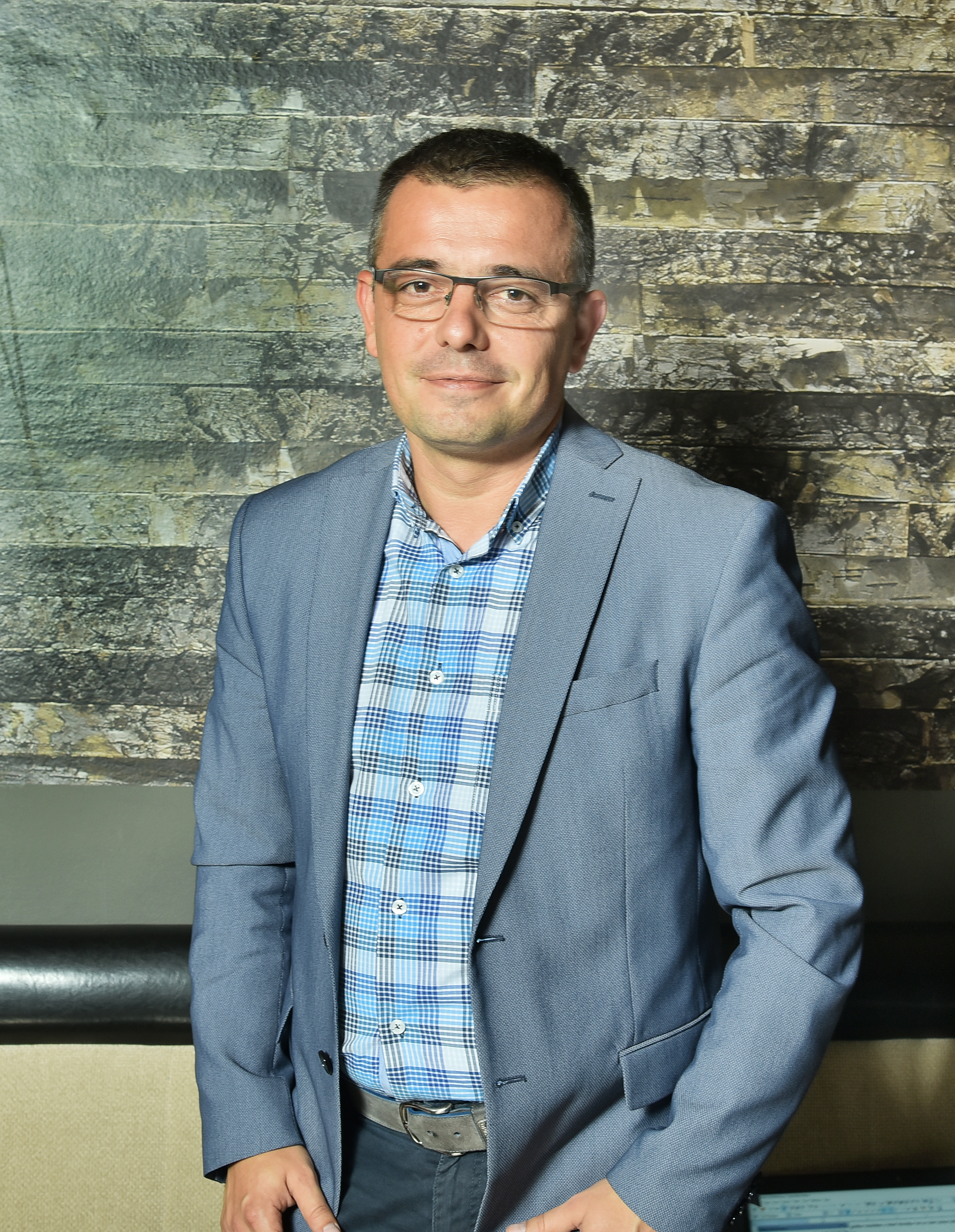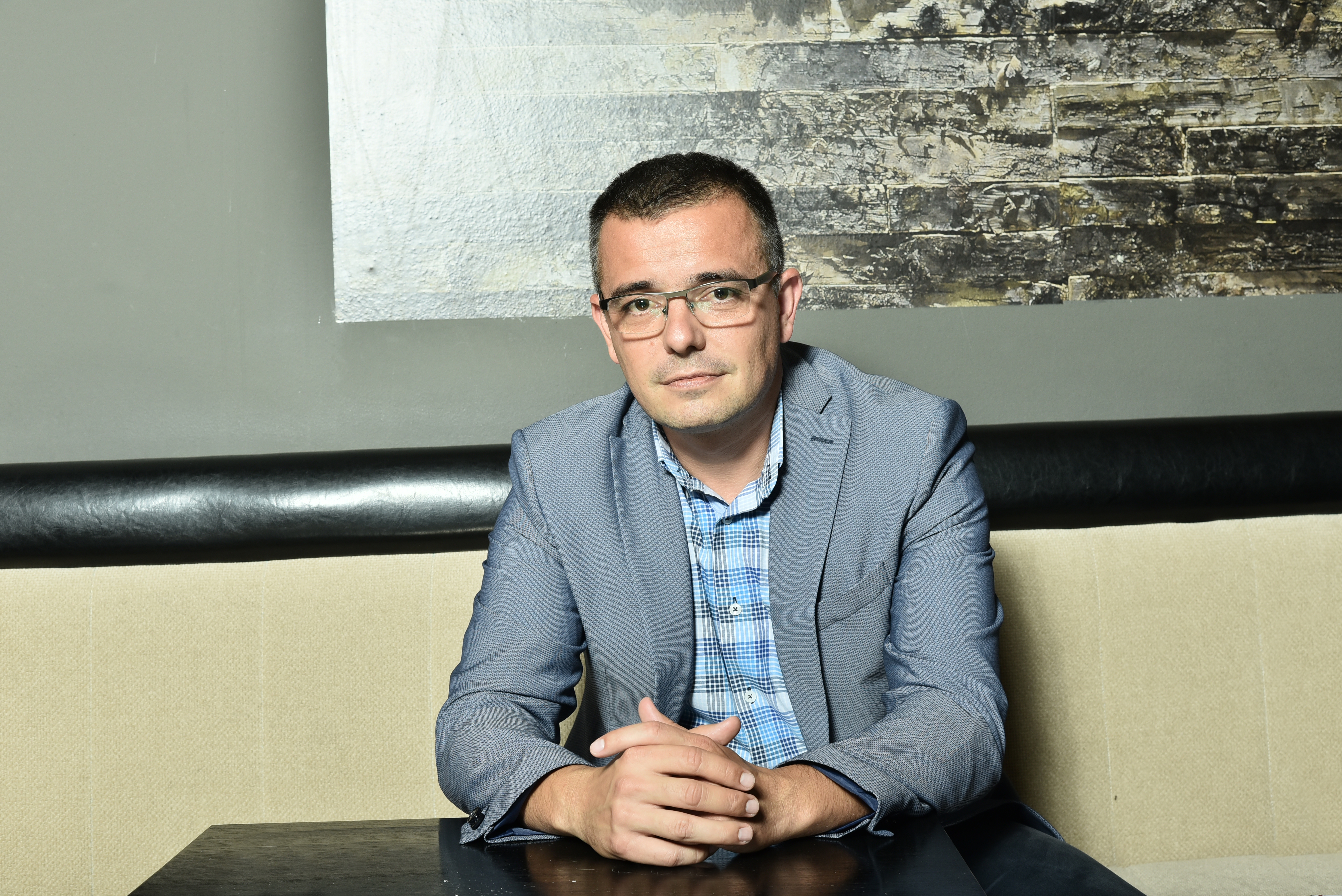After building his career as a mayor of Sremska Mitrovica, the capital of the fertile Syrmia region, Branislav Nedimović moved to NALED. He made his name by improving vital procedures in infrastructure and agriculture, relying largely on IT sector and e-government. After the last elections, he was appointed the new Minister of Agriculture. As an experienced technocrat, he has taken up the position in high spirits and great zeal to improve things that matter in citizens’ lives, successfully avoiding empty promises – a phenomenon which occurs very rarely in this region.
The new government is in many respects similar to the previous one. However, two appointees surprised the public, especially people who were unfamiliar with the fact that NALED works closely with the Government of Serbia and the Government of Vojvodina. Those two appointees were Ana Brnabić and youself. To what extent was NALED’s work in the shadow of the government? We are aware that this organisation has done a tremendous job without much fanfare.
There are several things that NALED has done in cooperation with the Serbian Government. Our main task was to introduce tough measures to combat the grey economy. We also launched building e-permits, and we have also started adopting a new law which will regulate rights of seasonal workers in agriculture.
There were a lot of comments on the work of NALED, most of them stating that it really helped change the society and the economy. As we have just mentioned, you introduced vouchers for seasonal agricultural workers, building e-permits, and one-stop-shop licences that will help the foundation of both local and international companies. Most of your promises used to start with “our commitment is…” or “the reforms will be painful…” but you really kept them all.
The key to our success is a tripartite dialogue and cooperation between the representatives of the economy, government, especially local authorities, and representatives of the NGO sector. In that triangle and on that level, it becomes crystally clear what has to be done and what the solutions to problems are. That is the secret of NALED’s success. The implementation stage in economy is the key. Solutions that cannot be implemented, cannot have any benefits on the sector. They are useless. Of course, without a political framework, our hands are tied. It is all about testing and choosing the right procedures, which would eventually bring added value. The procedures need to reflect citizens’ needs. This is NALED’s basic idea, and although we succeeded in many things, there is still a lot of work to be done. I think that, in the future, NALED will make an enormous contribution to combating the grey economy and developing new procedures. This tripartite dialogue taught us many things. People quite often say, “yeah, all these ideas, all this chit-chatting about the tripartite dialogue, it doesn’t make any sense”. In fact, the whole idea is so incredibly clever, that even I was not really aware of all of its benefits.
Could you tell us some more about NALED and its work and your own contribution to the projects we have just mentioned. How do you qualify to be a part of NALED’s team?
We worked on many tasks, but I think that improving foreign direct investments and creating special teams that are in service of investors were the most important. First of all, let’s have a look at one-stop-shop offices and the offices for local economic development. They successfully implemented all the achivements and certifications provided by NALED. Due to the procedures that we have established, Sremska Mitrovica, my home town, has become very attractive to foreign investors. As the procedures are very straightforward, they are very easily applied to foreign investments in Serbia, so it makes it easy to “go grab lunch and make a deal”. Investing implies sticking to procedures, procedures that are transparent and never change. I often used to be in a situation where foreigners would ask me the same question over and over again. Baffled, I would ask them if their hearing was all right. They would normally reply that they asked the same question several times only to make sure that they would always get the same answer. The European Union is based on a set of procedures, which are transparent and available to everyone. It is the best to have a procedure which involves no direct contact between the person who applies and the person who decides. It must not be completely impersonal, of course, but the pressure should be eased. This way, local authories find it easier to avoid explaining matters related to corruption. This way, it is easier to combat corruption. And why do local authorities frequently avoid adopting the planning acts? The planning acts are urbanisation acts, and the authorities need some space for their doings. I am not saying saying that there is any wrongdoing, but as long as there is corruption, there is a likelihood that there might be.
It seems that you are not reinventing the wheel. You analyse the successful procedures implemented abroad (for example, vouchers for seasonal workers are an idea drawn from the analysis of the Croatian model), and then simply apply them. What are some of the other projects that were successful in the world, and that we can expect to see in Serbia in the future?
We have to concentrate on models applied in the countries with similar needs. We did not shy away from learning from the Croatian model. At the moment, we are analysing the model applied in Hungary, since Hungary is very similar to Serbia. We like it even more, since in Croatia people to pay at two separate places, while in Hungary there is only one centralised place for that. On the other hand, you wouldn’t believe what country inspired us to introduce building e-permits – Macedonia! When I travelled to Macedonia with GIZ, I was surprised that I had to learn from the Macedonians how to use e-building permits. After 2 hours, I apologised to the group leader for being prejudicial. I admit, it is only human to make mistakes, but we have to learn from them. One of the things that I will insist on in the Ministry of Agriculture is the electronic application for economic incentives and subventions for agricultural workers and farmers. Farmer or their authorised agents should be able to apply for their incentives and stimuli by simply visiting the website of the Directorate for Agrarian Payments. It is a model yet to be developed. I am not sure whether we will use NALED or someone else, but that will be our next task. Also, we have to open offices for local development, or some other institutions that would help our farmers. IT should also be put in service of farmers and citizens. When I see people carrying around piles of papers, I get stressed out. It’s the 21st century!
Exactly. I visited Ukraine in 2006 for summer holidays. Back then, Serbian Railways timetable was static, and the Ukrainian wasn’t. For instance, people travelling from Kiev to Simferopol could clearly see how many seats were available, where those seats were, all in real time. And that was in Ukraine! Shame how we think we can’t achieve that, with our huge IT sector.
Many things can be done by simple bar-coding and having applications that easily traceable. My idea is to introduce a procedure which will enable applicants to trace their application at all times. That would put an end to corruption, too. Corruption would be virtually impossible. Everyone goes on and on about fighting corruption, but when you ask them how they do it, they shrug their shoulders. At the moment, corruption is widespread, and our high-tech solutions should curb it. It should be as simple as that. It will help us thrive. Singapore is the 1st on Doing Business list simply because it relies on e-government. Macedonia copied this model. Why are we trying to avoid it? Macedonia is now among the Top20 on that list, watch the CNN Invest in Macedonia commercial.
Do you expect to be under public scrutiny now that you are appointed as a minister? Will it be easier now for you to implement the ideas now or when you were with NALED?
This is a big challenge for me. Since I have got a lot of experience, I want to try and apply past solutions to the higher level. It was easy in NALED, feel free to say. Now we have an opportunity to act. Now we are decion-makers.
Is the four-year mandate as a minister long enough to finish big projects?
Four years is definitely enough, especially when it comes to high-tech projects. Projects regarding irrigation systems, which would enable farmers to get the added value, will take 4 to 6 years. It doesn’t matter who the minister is once it’s done. It is not about paying royalties. I never used to care about royalties in Sremska Mitrovica, and that hasn’t changed. If political success depends one successfully completed project, then I should not work here.
Is it true that if you do everything properly, one day we could be as successful as Estonia, which got elevated from a post-Socialist transitional country to an economically developed country?
You mention Estonia as if you had lived there. All the models have to be adjusted to our circumstances, and we should use the software models that already exist.
How significant is the Serbian resistance towards the innovations you fostered so far or are still planing to facilitate?
Sometimes the people are inert, but our job is to keep them informed about benefits of the reforms. When railway got electrified, people were angry. But if we explain the situation, if we tell them what our goals and tools are, we will quickly reach our objectives.
As a minister, what is you main goal, why did you accept this position?
My main goal is to enhance the yield in fruit production sector and in vineyards, by using the most sophisticated methods. I would also like to enhance the yield by irrigation, and opening up new processing factories that could absorb the added value created. As for the accession to the EU, I would like Serbia to finally get the Certificate from the Directorate for Agrarian Payments, so that the use IPADs can become our reality in a year and a half or two. That would make me happy. And if we manage to make fundamental changes in the irrigation sector, I would be beyond satisfied.

